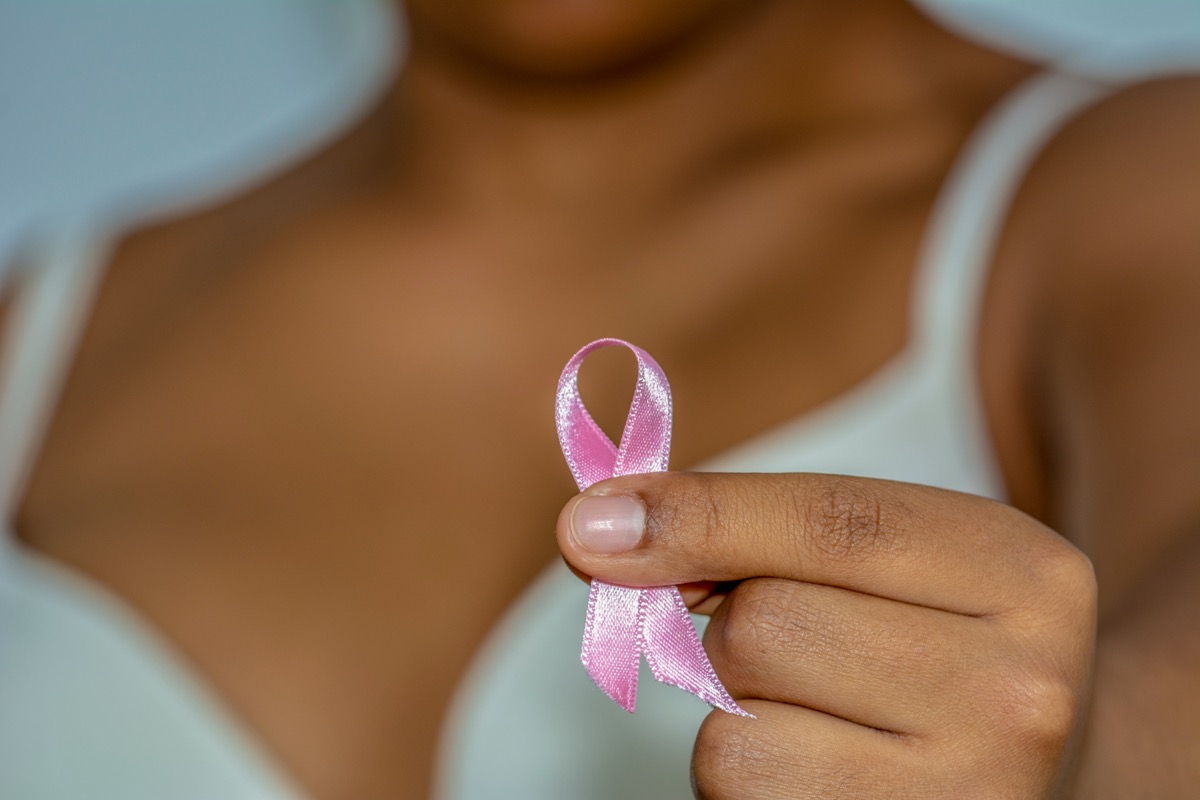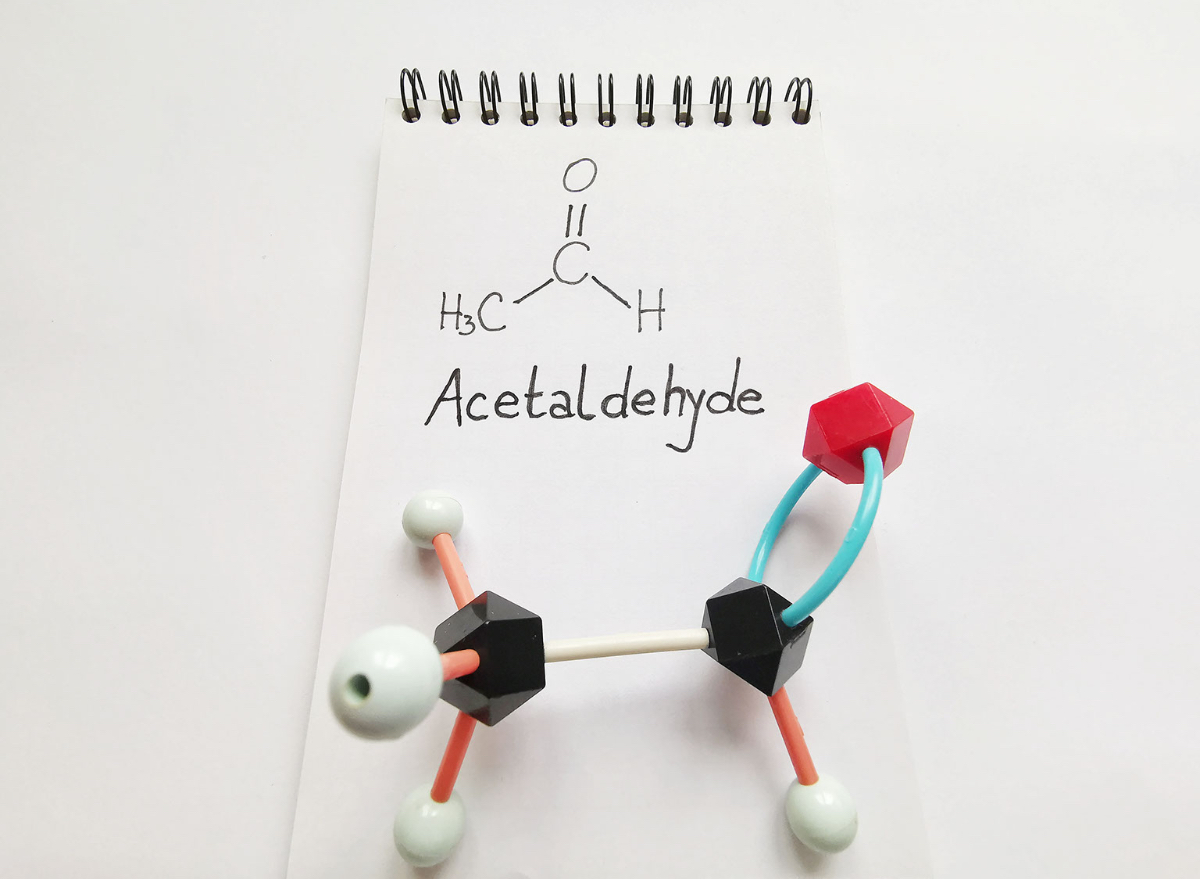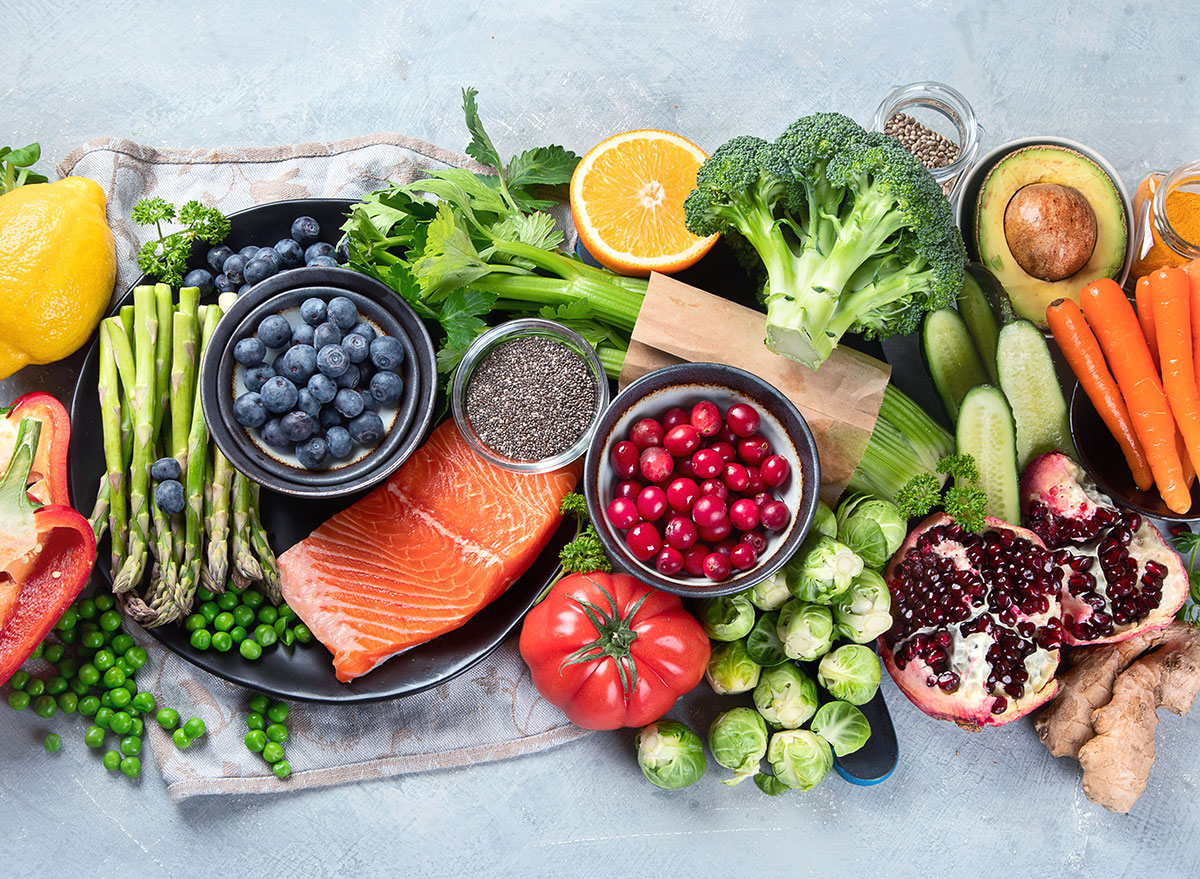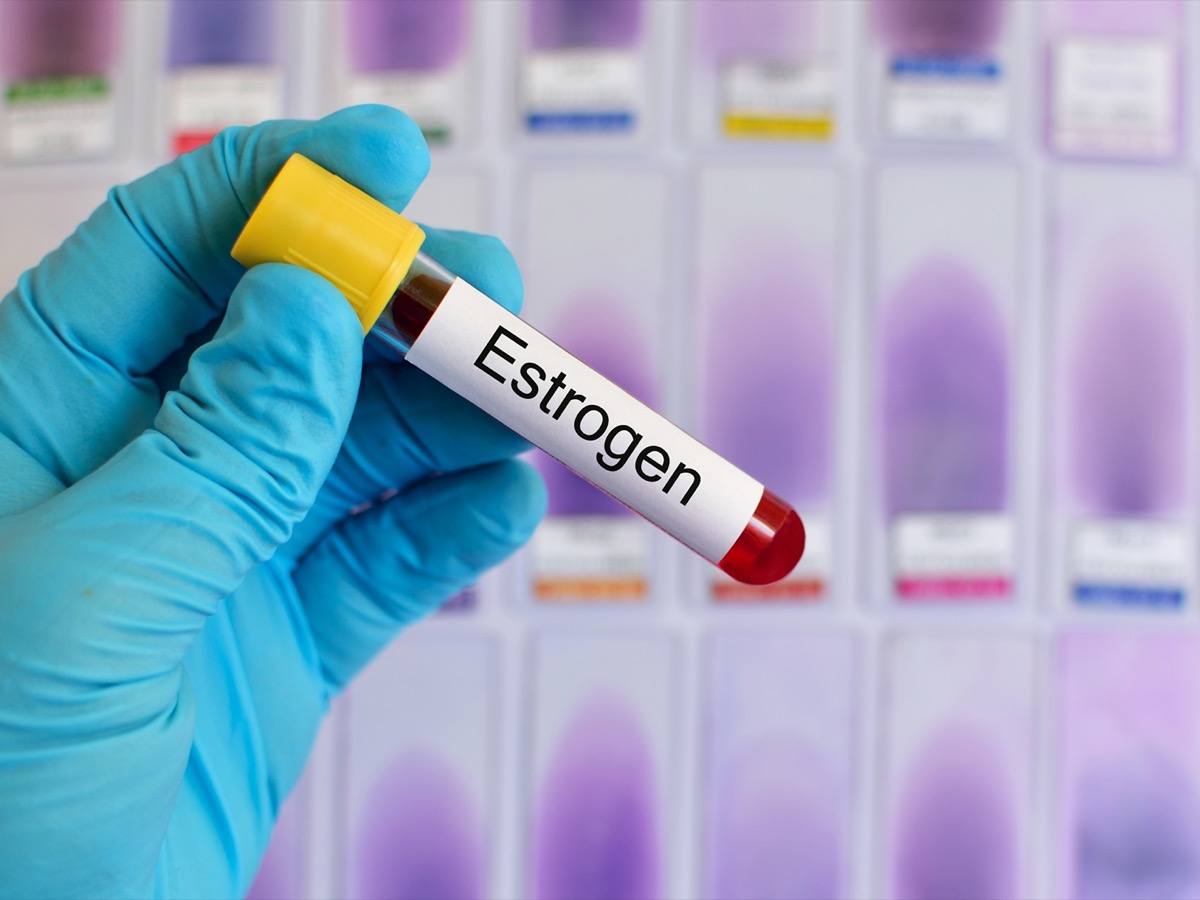Drinking This Every Day May Increase Your Breast Cancer Risk

The popularity of frequent alcohol use has caused a bit of a cultural chuckle during the pandemic. But, according to breast cancer research, it's important to remember that daily drinking is not a joke. A registered dietitian even suggests that one particular alcohol tendency can raise your breast cancer risk significantly. As science demonstrates, this pattern is critical to be aware of.
Karen Graham, RD, CDE is a registered dietitian and certified diabetes educator for over 30 years, as well as a winner of Canada's National Health Information Award. Recently, Graham told Eat This, Not That! that when it comes to wine in particular, getting carried away can be really negative for women's health. "I think the worst wine mistake you can make is thinking that drinking wine daily is a healthy choice," Graham said.
Graham added that despite past studies that have shown wine may provide "some mild heart benefits," the risks can outweigh the benefits. "Even one drink a day increases a woman's risk for breast cancer," Graham said. "The more you drink, the more likely you are to get breast cancer."
To underscore this, BreastCancer.org has stated that having just three drinks per week raises a woman's breast cancer risk by 15%. Meanwhile, Prevention reports that only one-quarter of women between 15 and 44 years old are aware of the breast cancer-alcohol connection.
Science shows there are several reasons regular drinking can raise a woman's chances of developing breast cancer. Keep reading to learn a few, via Prevention—and for more, check out the 20 Signs of Cancer Usually Ignored by Women.
Alcohol causes the body to produce this toxin.

According to Blair Washington, M.D., M.H.A., a clinical assistant professor of gynecology at the University of Washington, drinking alcohol triggers the body to produce acetaldehyde. Acetaldehyde is a toxin that Washington said can accumulate in breast tissue and cause DNA damage. This, in turn, affects the messaging that our cells receive to function and grow normally.
RELATED: Sign up for the Eat This, Not That! newsletter for daily food and wellness news.
Alcohol impacts nutrient absorption.

The National Cancer Institute adds that alcohol can disrupt the body's process of absorbing antioxidants and vitamins that can aid in preventing cancer.
RELATED: One Major Effect Vitamin D May Have in Preventing Breast Cancer, New Study Suggests
Alcohol can affect estrogen levels.

Prevention notes that alcohol consumption can cause a rise in estrogen to dangerous levels. Washington said this, in turn, "may encourage the spread of estrogen-responsive breast cancer cells."
Alcohol can cause excessive production of one growth-regulating hormone.

Regular alcohol may also cause the body to over-produce "insulin-like growth factor 1," which can lead to the proliferation of cancer cells, as well as an increase in dense breast tissue, Prevention reports. The Centers for Disease Control and Prevention (CDC) notes that women with dense breasts are more likely to develop breast cancer.
To learn your level of breast density and more about breast health, in general, regular checkups with your healthcare provider (and mammograms for women over age 40) are essential.
Get more nutrition and wellness news here:








